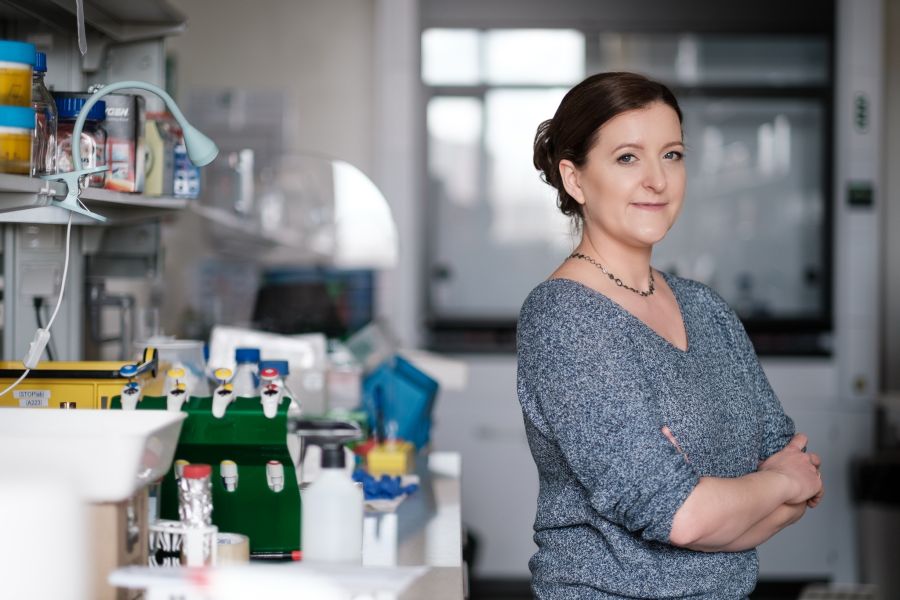Cancer is one of the leading causes of death in Europe, affecting the lives of millions of individuals. Still, cancer also has weaknesses, says Prof Kinga Kamieniarz-Gdula from the AMU Faculty of Biology, recipient of a Proof of Concept grant awarded by the European Research Council (ERC). The scientist will attempt to find new, more effective therapies for cancer patients.
Cancer develops as cells in the body begin to multiply uncontrollably, sometimes spreading to other parts of the body, explains Prof Kamieniarz-Gdula. Tumourigenesis, she says, is a complex process, leading to the disruption of multiple molecular pathways - depending on the location and type of cancer. These tumour pathways can vary. The current anti-cancer therapies frequently focus on just a few specific molecular targets, allowing pharmaceutical companies to develop medicines faster and more efficiently. However, this method is not always appropriate to the complexity of the disease - cancer cells, in addition to the aforementioned diversity, can change their nature over time and become resistant to the given medication.
It was recently discovered that the Achilles' heel of cancer cells is the final step of transcribing genetic information from a gene (DNA molecule) to RNA. Most human genes have several alternative ends, and choosing the right one can affect the final product - the protein. To apply this knowledge to potential anti-cancer therapies, AMU Professor Kinga Kamieniarz-Gdula and Dr Martyna Plens-Galska developed an innovative method to search for new medicines targeting the choice of where a gene stops.
The strategy designed by the researchers is unique in enabling high-throughput and direct monitoring of this process. Under a new Proof of Concept grant awarded to Prof Kamieniarz-Gdula by the European Research Council (ERC), the scientists intend to screen thousands of potential medicines and further develop the invented method. As a result, they hope to discover new and more effective therapies for cancer patients.
Kinga Kamieniarz-Gdula is a molecular biologist. She graduated with a master's degree in biology from Adam Mickiewicz University, Poznan. Afterwards, she completed her PhD thesis and a short postdoctoral fellowship in chromatin and epigenetics with Prof. Rob Schneider at the Max-Planck Institute in Freiburg, Germany. Subsequently, she moved to the University of Oxford to join Prof Nick Proudfoot's laboratory, thanks to a Marie Skłodowska-Curie Fellowship obtained. At Oxford, Prof Kamieniarz-Gdula changed her scientific focus, becoming fascinated by the ends of genes and began to study the processes of transcription retention and RNA processing occurring at these ends.
Photo by Władysław Gardasz


